
Mon 20 / 04 / 15
Hook that big buyer. Don't hold back!
For one slightly worrying moment, I thought he might topple over.
Jeremy Jacobs, Managing Director of Raise Bakery had jumped out of his seat and lifted his left leg high into the air. He was showing the Ride the Wave audience how he had coordinated his sock colours to match Virgin Atlantic’s brand. And how he’d managed to win a contract with the company, jumping from 500 cupcakes a week to 50,000.
The Ride the Wave spectators were food producers, all keen to – as the session title put it - ‘Scale up and meet the larger buyers.’ Jeremy’s socks illustrated a couple of points that cropped up repeatedly during the discussion: Be yourself and do your homework.
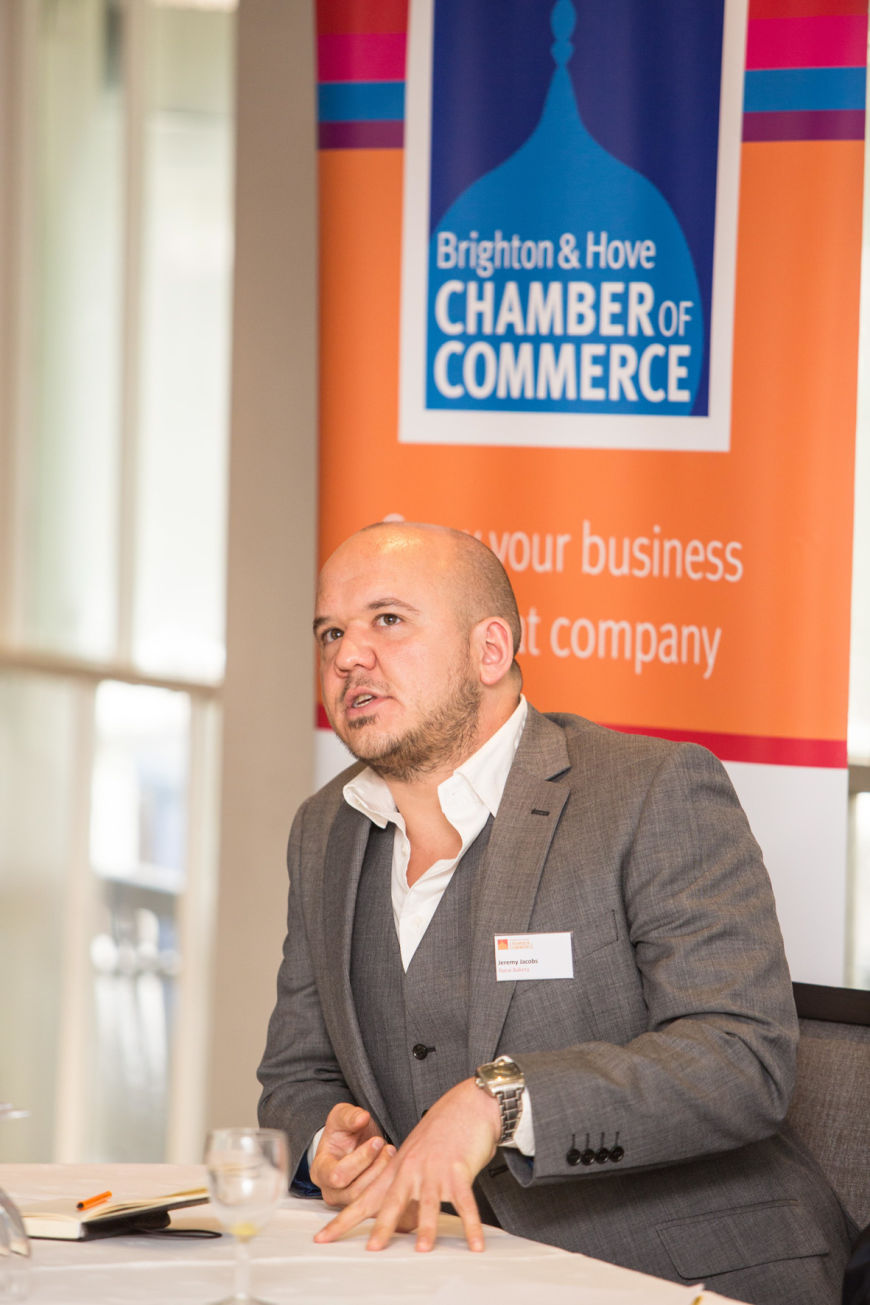
At the time of the Virgin Atlantic story (2012), Jeremy and his family-run bakery business, were a complete unknown to the airline. When he was called to a high-level meeting as a result of writing a comment on a Virgin Atlantic blog post, his colour-coordinated socks did two things: they ‘broke the ice very quickly’ and showed that Jeremy was genuinely interested in Virgin and had done detailed preparation on the company. “I went in and I was myself. I didn’t realise it at the time, but that is what they appreciated. One of them actually said afterwards, ‘One of the reasons we chose you was because of you, and how you interacted with us’.”
It worked and Jeremy won the contract. Since then, Raise Bakery has supplied a variety of large customers and detailed preparation has played a vital part of every pitch: “When I see a customer, I know exactly how their company began, who owns it, how long they have been running it, who they have been bought out by. I look at the industry stats and their position in the market. It really pays to do your homework.”
Take stock of yourself
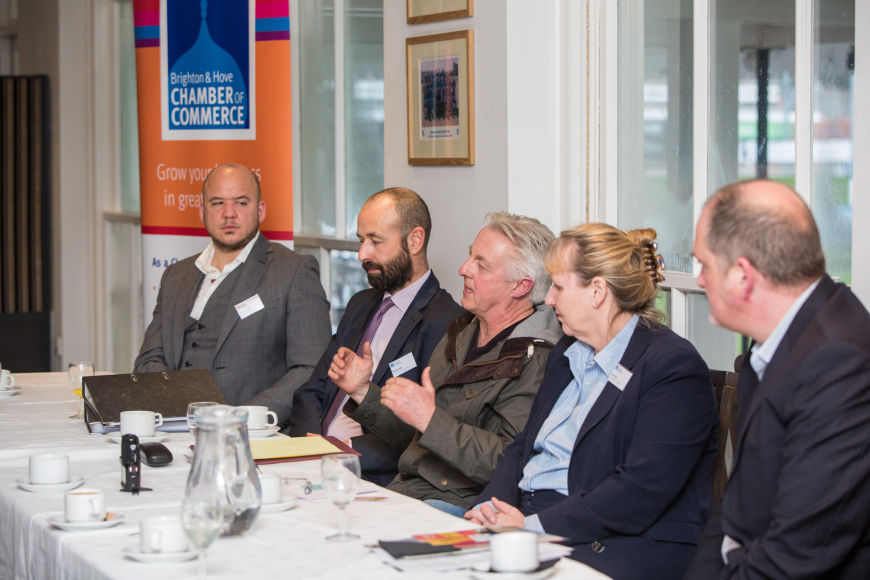
Part of that preparation is also to be absolutely honest with yourself about your costs and your own capacity. When you’re sizing up a contract, be meticulous about the maths. Another panellist, Dean Harding, Director of Hardings Bar and Catering Service stressed this several times: “Do your sums. Make sure you weigh up every element. In contract catering the margins are very low, single percentages, so you need to be sure you will walk away with something for yourself.”
You also need to be sure that if you win a particular contract, you can really deliver the volume and quality that your client will expect. Roly Knight, CEO of JR Wholesale, is a market gardener and catering supplier: “Don’t ever get in front of yourself. Risk assessment is really important. Make sure you can always deliver on the busiest day. So plan ahead all the time. Initially, it might seem frightening, but if you grow into it, it becomes part of the ‘every day’. You get used to producing that size.”
Honesty’s the best policy
Jean Piper, Executive Head Chef of the University of Brighton, was also on the Ride the Wave panel. She represents one of the city’s big consumers - five campuses with thousands of hungry students to feed: “Do come and talk to us and don’t be afraid to say what your limitations are at any point. It’s better to be honest with us and let us grow together. Avoid saying you can supply something and then we discover that it won’t work out. That can leave us with a nasty taste in our mouths and we’re likely to back off.”
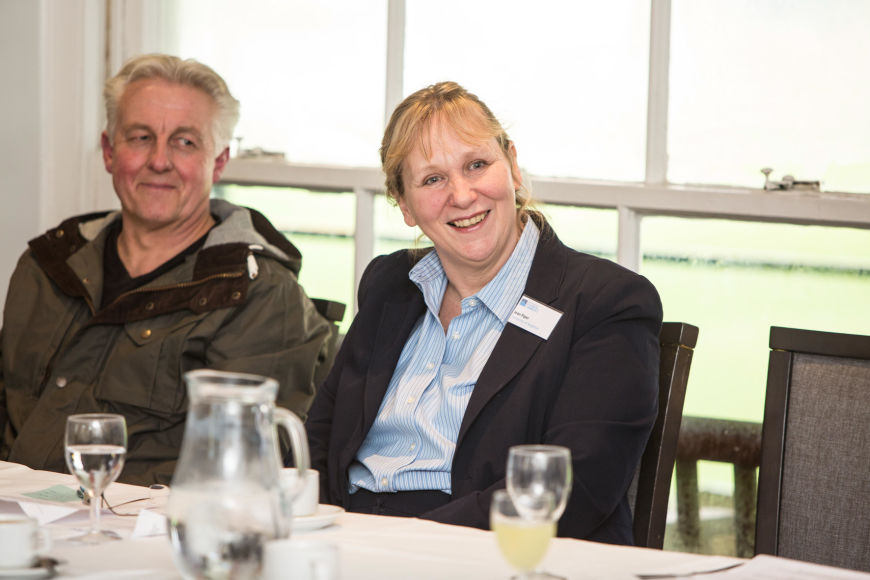
Jean wants to know you’re professional and credible, so basics like public liability insurance and food hygiene certificates are crucial. If you’ve catered for clients of a similar size, make sure you tell her. That’s helpful. If you haven’t, all is not lost: “What will persuade me? I can be persuaded if you have the paperwork behind you…and personality to be honest. Tell us about your lovely product. I want to hear the journey of how it comes from the field into the kitchen. If it will fit in with our sales, yes, we will give anything a go.”
Be proactive
The University gave Roly Knight ‘a go’ in 2008. Over the last seven years, Roly’s market garden and catering supplier business has steadily grown, campus by campus, tender by tender. One of the reasons why it’s been such as successful working relationship is because Roly is proactive about looking after his clients. He comes up with processes and products which will help the busy chefs who use his fruit and veg. For instance, he’s a dab hand at ‘vegetable snips’ – the off-cuts from vegetables which could so easily go in the bin. Roly’s snips are used in soup mixes and mashes. It means that the University’s kitchens can produce mountains of mashed potato in 12 minutes, without the hassle of peeling and cutting. Roly’s sorted it for you. That’s why, in the University’s eyes, he’s a keeper.

Taking the initiative also scored highly with the panel’s Dean Harding. Hardings’ clients include the Brighton Dome, Brighton Pavilion and one-off events like agricultural shows and festivals. “I like a phone call every now and then. My current fish supplier calls me every Monday morning. He will let me know what’s good, what they have an abundance of, special prices, something on bulk. I like that contact with them.”
Jean agrees: “It’s the difference between being an account number and a relationship with a name. You get so much more out of the relationship. And for us, working with food, it makes it far more exciting to say, “Yes, the first asparagus is coming in!” And that story is important for the customer. With Roly, we’ll say, ‘Yes, we’ll take all your apples and pears’ and we can explain to our customers how this fruit comes from Horam or Herstmonceux. That creates a story in itself, which adds great value to the product.”
Be responsive and flexible
There’s another bonus to being small. It means you’re more nimble than the bigger boys. Dean: “If you look at the very price conscious years of 2008 and 2009, we used to deal with national food and wine suppliers to save money. Now we have come full circle and we pay a bit more. It means you have someone at the end of the phone. So if you have a problem delivery, we just pick the phone and it is dealt with straightaway. For instance, my wine supplier is local to Sussex. You can phone him at 6 o’clock in the evening if you’re running low on certain things. And you’ll have replacement wine there within the hour. It’s about loyalty.”
Don’t be shy
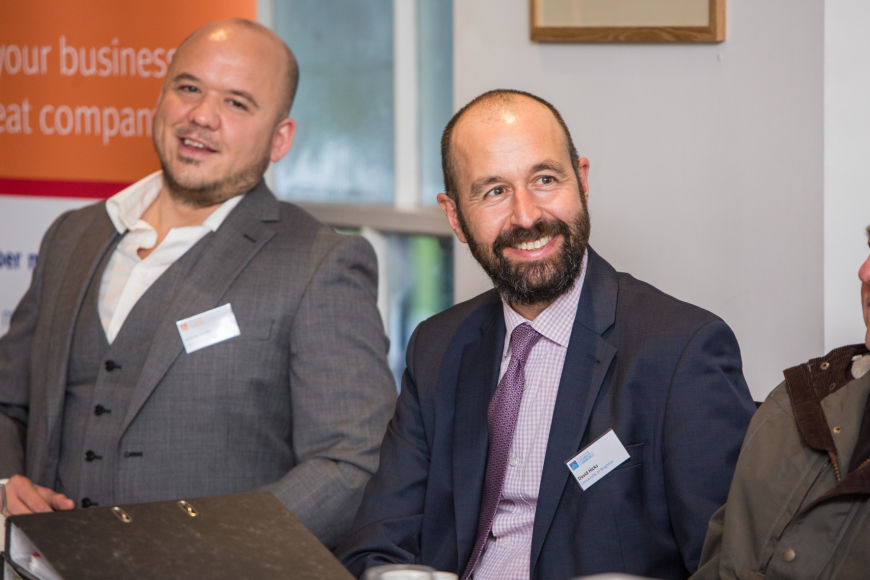
The last word goes to David Hicks, Deputy Head of Accommodation and Hospitality Services at the University of Brighton. He explained that although universities have to work to national procurement criteria, there is flexibility within that framework to use smaller suppliers - particularly for perishable goods such as fruit, veg, dairy, meat, cakes and pastries. There might also be opportunities if you specialise in niche products, such as pickles and preserves. So whatever your size, whatever you do, never rule yourself out: “Don’t be afraid to come and talk to us. We can’t guarantee we’ll use you, but if you have got something that you think is of interest, we want to hear about it.”
PS. For the record, Jeremy Jacobs did not topple over. Which was a good thing, because his mum was in the audience.
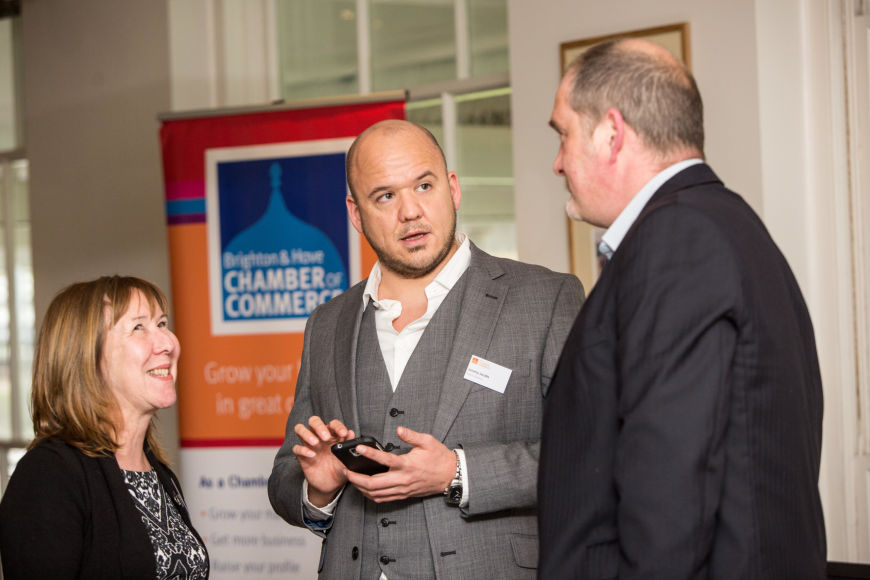
Hook that big buyer. Your at-a-glance guide
- Be yourself and tell the story of how you created your product.
- Be meticulous about your homework. Prepare your pitch carefully.
- Be honest with yourself about your costs and capacity.
- Be clear about where you stand in the market and who you’re selling to.
- Be proactive. Think ahead on behalf of your client. Which problems can you solve for them now and in the future?
Useful links:
Salsa - Safe and Local Supplier Approval
BRC Accreditation
Brighton & Hove Food Partnership
Blog written by Miranda Birch of Miranda Birch Media, who expertly chaired the Ride the Wave event for food and drink producers 'Scaling up - meet the larger buyers' on Tuesday 24th March.

Thanks to Brighton Togs (soon to be Vervate) for taking photographs at the event.
Ride the Wave is Brighton and Hove's flagship business support programme, led by Brighton Council and designed and delivered by Brighton Chamber. Training, workshops, meet-ups and mentoring are all free or nearly free and the fourth series ran from November 2014 to March 2015. A range of businesses benefited from the varied programme, designed to inspire innovation and build growth.
You might also like:
If you want to contribute to the Chamber blog, contact us on hannah@brightonchamber.co.uk


